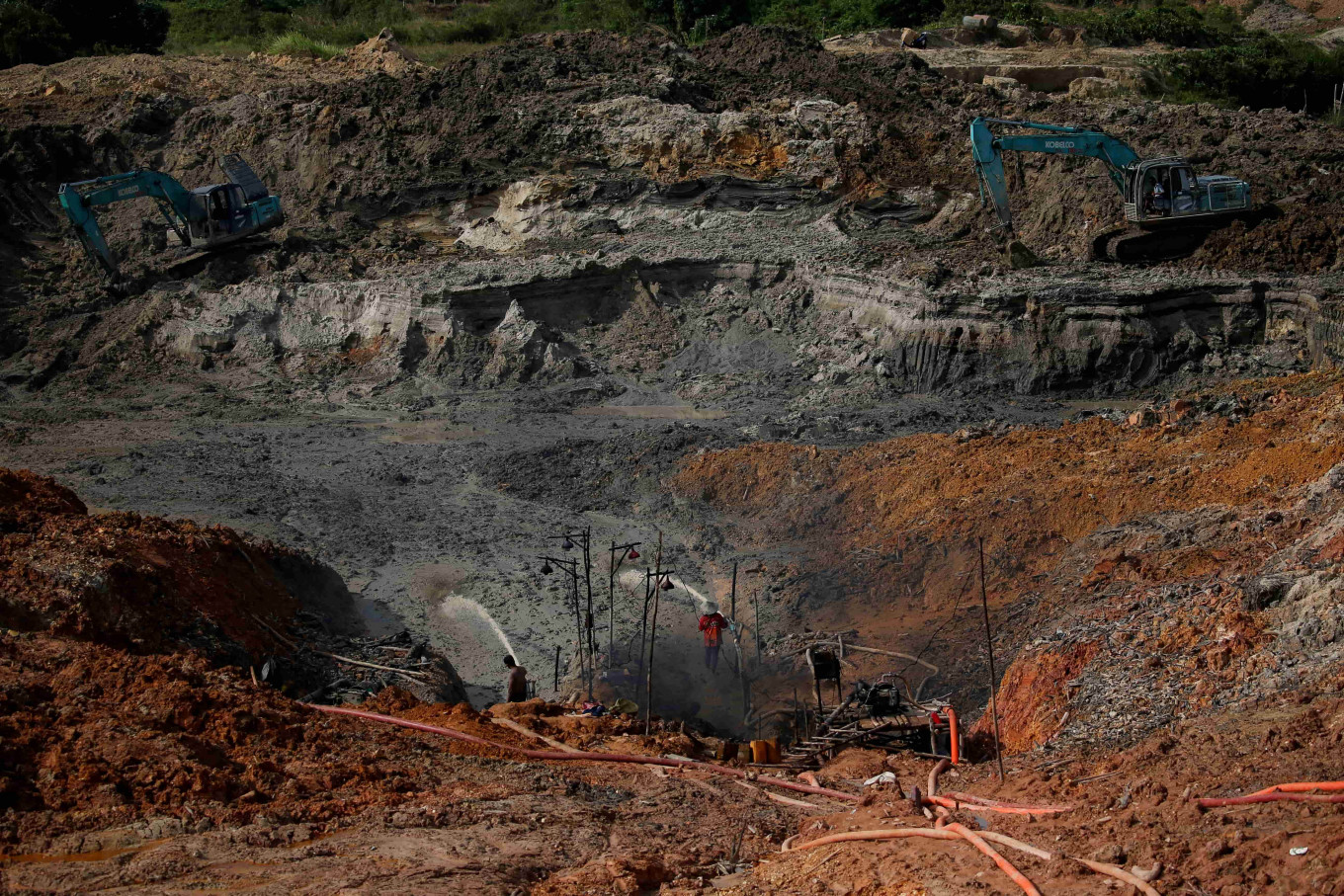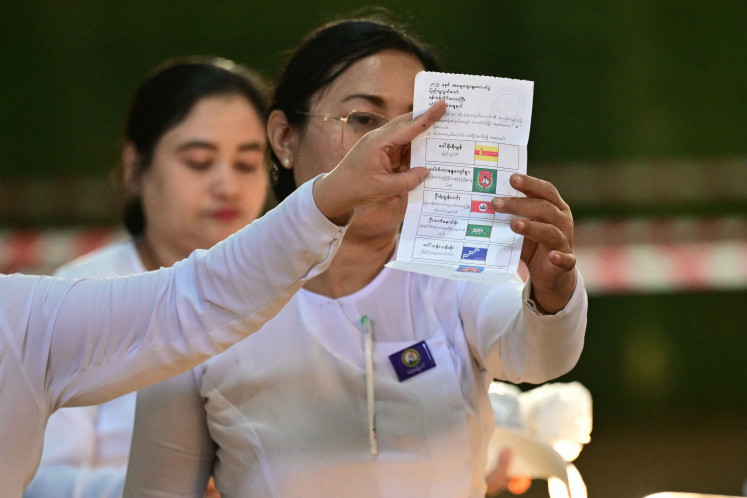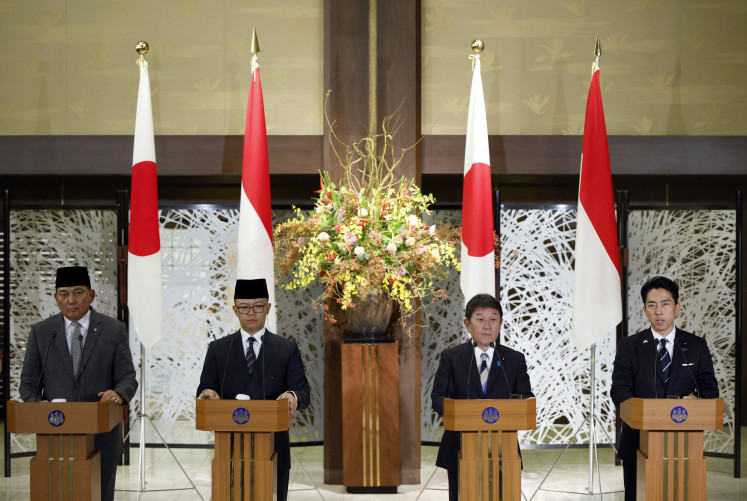Popular Reads
Top Results
Can't find what you're looking for?
View all search resultsPopular Reads
Top Results
Can't find what you're looking for?
View all search resultsReckless mining oversight
The government seems to care only about the revenue generated from the mineral sectors and ignores the environmental destruction and the plight of the people affected by the related industries.
Change text size
Gift Premium Articles
to Anyone
A
recent jaw-droppingly massive corruption case in the tin sector is yet another reminder that the government still lacks the capacity to manage the country’s vast natural resources.
The graft case occurred in the concession areas of state-owned miner PT Timah in Bangka Belitung, which holds the largest tin reserves in the country. The archipelagic province produces 90 percent of the country’s tin, which is mostly under the control of Timah.
Tin mining in Indonesia dates to the 18th century. The Palembang sultanate that ruled the islands at that time even had to bring in workers from China to work in the mines to fulfill the production quota it had agreed to with the Dutch.
Despite the entry of new mining companies after the Reform era, Timah has maintained the largest concession area at more than 288,000 hectares of land with more than 184,000 ha in the waters between Bangka Island and Kondur Island.
But clearly for the government and for Timah, the long experience has not translated into the mastery of operations and good governance to ensure responsible mining practices.
As tin is relatively easy to mine, illegal mining has always been rampant and has caused large-scale environmental destruction in the province. Green group Walhi Bangka Belitung recorded in 2019 that more than 1 million ha of the province’s total area of 1.6 million ha have become mining zones.
A report from Tempo magazine revealed that 460,000 ha of forest areas in the province were converted into mining areas from 2018 to 2023. At least 27 people died in mining accidents while another 21 died after drowning in mining pits.
The government turned a blind eye to the adverse impacts of tin mining, despite the fact that Indonesia is one of the largest exporters of the mineral and holds the second-largest reserves in the world.
With such a long record of recklessness, it comes as no surprise that the country is currently in the spotlight once again because of poor nickel mining practices in Sulawesi and North Maluku.
As the government pushes for nickel downstreaming to support its ambition to become an electric vehicle (EV) battery hub, it has allowed poor work conditions and relaxed environmental standards in the mining and smelting areas that have resulted in land conflicts, work accidents and fatalities.
Similar patterns can also be found in the forestry and plantations sector. Rampant deforestation and forest fires have become a regular occurrence amid poor oversight and a lack of law enforcement.
The government seems to care only about the revenue generated from these sectors and ignores the environmental destruction and the plight of the people affected by the related industries.
This stark evidence of recklessness provides a bitter reality check to leaders’ populist speeches about improving welfare or making Indonesia a high-income nation under President Joko “Jokowi” Widodo’s vision of Golden Indonesia 2045.
Since Indonesia is rich in natural resources, the government must up its game in natural resources management to bring about any significant impact.
They can start by strictly evaluating mining licenses and concession areas for each commodity. Permits should be given out based on the competence and capacity of companies and should not be awarded as a reward to large organizations or other groups that have the potential to abandon or subcontract the licenses.
In the case of Timah, the government may as well revoke its mining permits or concession areas and give them to other companies that are more prudent and capable under a transparent process.
It is worrying to hear that even President Jokowi himself has offered mining concession to Nahdlatul Ulama (NU), the country’s largest Muslim organization which is known as a government supporter. President-elect Prabowo Subianto also promised to give away mining licenses to NU during his campaign in Malang, East Java, in November.
As long as the government fails to manage natural resources, Indonesia will remain a developing country that supplies energy and minerals, and when those resources are depleted, we will only be able to cry over spilled milk while other countries grow and prosper.











